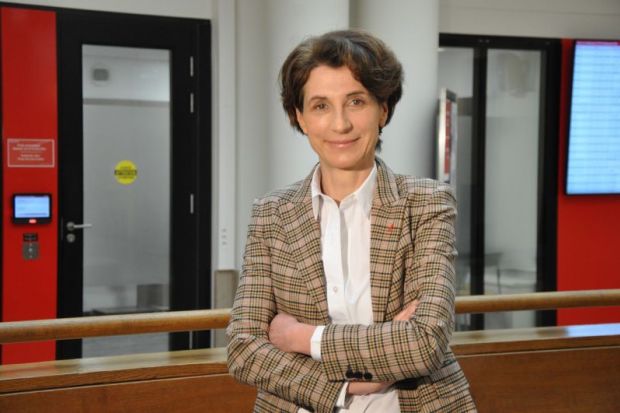The acting head of France’s elite Sciences Po university has defended the institution’s record on campus sexual assault after months of scandal battered the reputation of the country’s training ground for political leaders.
Bénédicte Durand took over as acting president in mid-February after the resignation of Frédéric Mion, who admitted he had known since 2018 of allegations of incest in the 1980s against the chairman of the institution’s governing board, Olivier Duhamel, but failed to act.
This scandal triggered a flood of students coming forward on social media with their own stories of sexual assault on campus, both at the Paris-based Sciences Po, and other universities across France. Last month a campaigner told Times Higher Education that she had been contacted by 400 victims so far, who mostly had experienced rape.
Speaking to THE, Professor Durand said that the Duhamel scandal had sent a “wave of shock throughout the university”.
“A man committed a crime 30 years ago, and it does not concern the life of our university,” she said. “However, from a symbolic viewpoint, this is obviously a very serious crime that shocked our entire community.”
She insisted that Sciences Po’s governance during the scandal had proved to be “solid”, “resilient” and “accountable”, pointing to the wider findings of an official investigation into the university that led to Professor Mion’s resignation.
“These mechanisms [to prevent sexual assault] that we’ve implemented were actually efficient, and there was absolutely no complacency whatsoever within our universities,” she said. “It [the report] lifted all doubts in this regard.”
A committee set up to investigate how Sciences Po can better tackle sexual assault will report during April, she said, and recommendations should be implemented by the autumn.
“There is a need to prevent all situations where there might be a risk of such violence,” she said, with extra training for “all professionals in contact with young people” and better “mechanisms to support victims of such violence”.
“We have a key responsibility...because we are training tomorrow’s leaders. So we must particularly lead by example. The situation we’re going through right now is a milestone in Sciences Po’s history and we are ready to commit.”
Campaigners have pointed to boozy initiation parties as hotspots of sexual assault.
But Professor Durand said that although they led to situations with “more risks with regard to gender-based violence”, stopping them was not the answer.
“These are also key moments in university life,” she said. “Overall, students themselves experience these as moments when they bond and grow as a community.
“So we cannot ban these events as such, but what we can do, and we must do, is put into place measures so that, first of all, students are more trained and accompanied, and therefore more accountable for what happens during these events or side events” and bring in “mechanisms to raise flags”. She stressed that most assaults take place off-campus, but that the university was still “very much responsible” for supporting victims.
Previously the university’s vice-president for academic affairs, Professor Durand said that her role as interim president was to “bring back a sense of serenity” to the institution before a reconstituted board appoints a new president later in the year. Despite the scandals of recent months, she stressed that numerous other projects – a revamped Parisian campus, and the creation of a European University of Social Sciences with seven other institutions from across the continent – are proceeding apace as Sciences Po prepares for its 150th anniversary next year.
Register to continue
Why register?
- Registration is free and only takes a moment
- Once registered, you can read 3 articles a month
- Sign up for our newsletter
Subscribe
Or subscribe for unlimited access to:
- Unlimited access to news, views, insights & reviews
- Digital editions
- Digital access to THE’s university and college rankings analysis
Already registered or a current subscriber? Login








